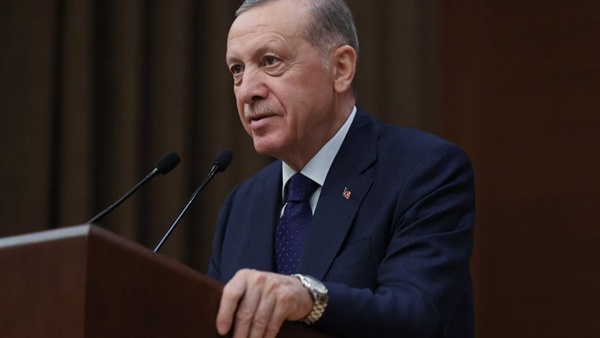Turkey’s Approval of NATO Expansion Could Take Months

The Turkish government is unlikely to seek parliamentary
approval for Ankara to back Sweden and Finland’s entrance to NATO before
Turkey’s national election later this year, a top aide to President Recep
Tayyip Erdogan said Saturday.
Ibrahim Kalin, who is Mr. Erdogan’s spokesman and
effectively serves as his national-security adviser, told journalists in
Istanbul that the government was unlikely to seek a vote in parliament due to
public opinion in Turkey, which is broadly supportive of Mr. Erdogan’s hard
line against Sweden and Finland over their relations with Kurdish separatists.
“The opposition will ask all kinds of questions, and we
cannot risk our political capital as we go into elections in the next three,
four months,” he said.
Mr. Erdogan’s ruling party has a strong majority in
parliament, but both the president and his Justice and Development Party, or
AKP, are facing a close reelection bid this year due to Turkey’s struggling
economy. Turkey’s largest opposition parties have joined Mr. Erdogan in
strongly criticizing Sweden in particular over allowing alleged Kurdish
separatists into the country.
Mr. Kalin said the election would most likely take place in
May, slightly earlier than a constitutional deadline in June.
The comments come as Western leaders are intensifying
efforts to convince Turkey to drop its opposition to the two Nordic countries’ joining
the alliance before the North Atlantic Treaty Organization summit in Lithuania
in July.
Finland and Sweden applied to join NATO last year in a
historic shift in security policy for both countries, responding to Russia’s
invasion of Ukraine. Every member of NATO has approved the Nordic nations’
entry except for Turkey and Hungary, and Hungarian officials have said they
would send the matter to parliament early this year.
Mr. Erdogan first threatened to veto Sweden’s and Finland’s
entrance to NATO last year, citing what he said were ties to Kurdish militant
groups including the Kurdistan Workers’ Party, or PKK, which is considered a
terrorist group by the U.S. and the European Union. Members of the PKK’s Syrian
branch are part of a U.S.-led military coalition fighting Islamic State, and
the Kurdish group also has some support among Kurdish communities in Europe.
Turkey signed an agreement with Finland and Sweden in June,
a deal intended to resolve the dispute through a security dialogue. The two
countries also dropped barriers to arms sales to Turkey, and Sweden in November
amended its constitution to make it easier to pass counterterrorism laws.
NATO Secretary-General Jens Stoltenberg has said that
Finland and Sweden have upheld their obligations under the June agreement, but
Turkish officials say they want more concrete action from Sweden, citing a
protest earlier this week in which demonstrators in Stockholm hanged an effigy
of Mr. Erdogan. Turkish officials also say they want more suspected Kurdish
militants extradited by Sweden.
“We are not in a rush here, they are in a rush to join
NATO,” said Mr. Kalin.
Mr. Erdogan has played a role as a go-between between Russia
and Ukraine since the Kremlin launched its invasion last year, helping to
broker talks over a deal that included the resumption of Ukrainian grain via
key Black Sea ports, prisoner exchanges and other issues. The Turkish president
has sought to leverage his role in the crisis to expand his international
influence and improve his standing within Turkey and internationally.
The Turkish official’s comments come as the Biden
administration prepares to seek congressional approval for a $20 billion sale
of a new fleet of F-16 warplanes to Turkey. Administration officials intend the
prospect of the sale to prod Turkey to sign off on Finland and Sweden’s
accession to NATO, The Wall Street Journal reported on Friday.
Mr. Kalin said that congressional approval of the F-16 deal
would depend on whether the Biden administration would pressure members of
Congress such as Senate Foreign Relations Committee Chairman Bob Menendez, who
has vowed to oppose the sale on human-rights grounds. He said congressional
opponents of Turkey seemed to have an “endless” list of demands for Ankara.
“They will continue to oppose whatever comes from Turkey,”
Mr. Kalin said of Turkey’s critics in the U.S. Congress.
“I hope they don’t go down that way, so the F-16 thing does
not become hostage to Sweden and Finland joining NATO or other demands. This
has been going on for too long already,” he said.
The Biden administration’s plans to seek congressional
approval for the F-16 deal coincides with a visit to Washington next week by
Turkish Foreign Minister Mevlut Cavusoglu, where he is expected to discuss NATO
expansion and a range of other issues with U.S. officials.







